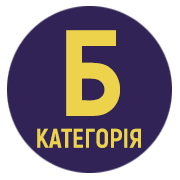СУЧАСНІ ВЕКТОРИ ПРОФЕСІЙНОЇ ПІДГОТОВКИ ДИРИГЕНТА ОРКЕСТРОВОГО КОЛЕКТИВУ
Анотація
У пропонованій статті висвітлено сучасні методологічні підходи поняття, що сприяють активізації процесу професійної підготовки диригента оркестрового колективу з урахуванням сучасних потреб. Обґрунтовано динаміку становлення зазначеного особистісного утворення через самопізнання та самооцінювання до творчої реалізації індивідуальних стратегій набуття професійного досвіду в диригентсько-оркестровій діяльності. Значна увага приділена розкриттю проблем, що впливають на формування особистісної структури майбутнього диригента оркестру. Спираючись на провідні наукові положення теорії особистості, значна увага в роботі приділена людиноцентристській науковій парадигмі, яка уособлює фундаментальний методологічний напрям. Вона представлена гуманістичним, особистісно орієнтованим, антропологічним і культурологічним підходами, які мають значні пояснювально-дослідницькі можливості для вивчення професійної діяльності диригента оркестрового колективу та його формування як професіонала у процесі підготовки у вищих мистецьких навчальних закладах. У статті стверджується, що професійна підготовка диригента оркестрового колективу має бути спрямована на те, щоб студенти усвідомлювали власну значущість в загальному соціумі музичної культури, яка ґрунтується на реальних потенційних можливостях. Такий підхід активізує мотивацію до набуття нових знань і професійного самовираження, відкриває для студентів нові творчі перспективи. Пропоновані методологічні підходи висвітлюють динаміку становлення зазначеного особистісного утворення у професійній діяльності через самопізнання та самооцінювання до створення та творчої реалізації індивідуальних стратегій набуття та професійного досвіду в диригентсько-оркестровій діяльності. Обрані підходи є інтегративною єдністю, що відображують цілісний системний характер досліджуваного особистісного утворення стосовно оркестрового диригента.
Посилання
Науменко С. (1995). Основи вікової психології. Київ: УЦТДЮ. 102 с.
Орлов В. (2003). Професійне становлення вчителів мистецьких дисциплін: монографія. За заг. ред. І. Зязюн. Київ: Наукова думка. 276 с.
Зязюн І. (2000). Педагогіка добра : ідеали і реалії : науково-методичний посібник. Київ: МАУП. 312 с.
Ушинский К. (1974). Вибрані педагогічні твори. М.: Педагогика. Т. 1. 584 с.
Пазовский А. (1966). Записки дирижера. М.: Сов.композитор. 561 с.
Сластенин В. (2000). Педагогіка: навчальний посібник для студентів педагогічних навчальних закладів. М.: Школа-Пресс. 512 с.
Гершунский Б. (1998). Філософія освіти для ХХІ ст. М.: Совершенство. 605 с.
Олексюк О., Ткач М. (2004). Педагогіка духовного потенціалу особистості: сфера музичного мистецтва: навчальний посібник. Киъв: Знання України, 263 с.
Григорьєв Л. (1969). Сучасні диригенти. М.: Сов. композитор, 324 с.





